

| Permalink: | PHYLSELN |
| Higher taxa: | Gracillariidae (family)/ Phyllocnistinae (subfamily)/ Phyllocnistini (tribe)/ Phyllocnistis (genus)/ |
| Status: | Accepted |
| Authorship: | Brito & Moreira, 2017 |
| Citation: | Phyllocnstis selene Brito & Moreira, sp. nov. |
| Original genus: | Phyllocnistis |
| Publication: | Brito, R., Mielke, O. H. H., Gonçalves, G. L. & Moreira, G. R. P. 2019. Description of three new species of Phyllocnistis Zeller, 1848 (Lepidoptera: Gracillariidae) from the Atlantic Forest, South Brazil, with notes on natural history and phylogeny. |
| Journal: | Austral Entomology |
| Volume: | 58 |
| Issue: | |
| Pagination: | 43–49, Figs 2c,f, 3g–i, 14a–e, 15a–f, 16a–f, 17a–h, 18a–h |
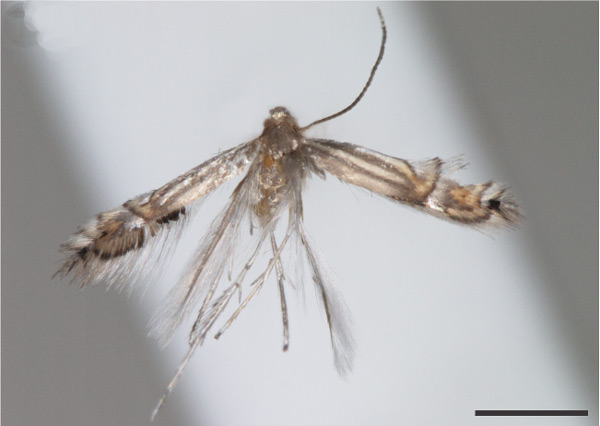
| Scientific name | TypeStatus | Gender | Museum | Description | Country | Locality | Publication | URL |
|---|---|---|---|---|---|---|---|---|
| Phyllocnistis selene Brito & Moreira, 2017 | Holotype | ♂ | DZUP | Holotype ♂, genitalia slide GRPM 50–121♂, acquisition number DZ 33.403, DZUP | Brazil | Brazil, Rio Grande do Sul state, São Francisco de Paula municipality, Centro de Pesquisas e Conservação da Natureza Pró Mata, 29°28’36”S 50°10’01”W, 900 m, 7.iii.2014, collected on Drimys angustifolia, leg. G.R.P. Moreira & R. Brito. | ||
| Phyllocnistis selene Brito & Moreira, 2017 | Paratype | ♂ | DZUP | Paratypes 2♂, 2♀: 1♂, genitalia slide GRPM 50–122♂, 1♀, ac. nrs DZ 33.413, DZ 33.423, DZUP, 1♂, genitalia slide GRPM 50–123♂, 1♀, ac. nrs 57.620, 57.621, MCTP. | Brazil | Brazil, Rio Grande do Sul state, São Francisco de Paula municipality, Centro de Pesquisas e Conservação da Natureza Pró Mata, 29°28’36”S 50°10’01”W, 900 m, 7.iii.2014, collected on Drimys angustifolia, leg. G.R.P. Moreira & R. Brito. |
| DNA voucher(s) |
|---|
| MISA015-16; LMCI 263-10 LMCI 263-9 |
| Scientific name | Country | Province | Publication | URL |
|---|---|---|---|---|
| Phyllocnistis selene Brito & Moreira, 2017 | Brazil | Brito, R., Mielke, O. H. H., Gonçalves, G. L. & Moreira, G. R. P. 2019. Description of three new species of Phyllocnistis Zeller, 1848 (Lepidoptera: Gracillariidae) from the Atlantic Forest, South Brazil, with notes on natural history and phylogeny. page early online |
Mines are transparent, serpentine shaped, followed by a brown trail of feces. Initially they are thin, increasing in width; corresponding paths may cross each other forming blotches (Brito et al. 2017a: early online).
| Scientific name | Plant | Plant Family | Country | Publication | URL |
|---|
| Scientific name | Parasitoid | Parasitoid Family | Country | Publication | URL |
|---|
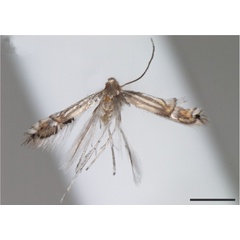
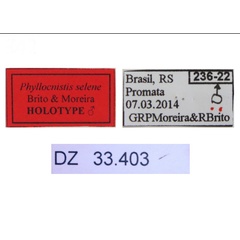
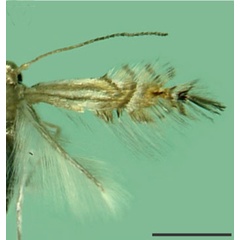
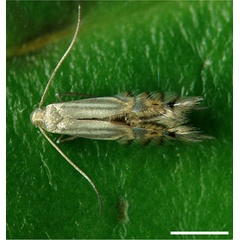
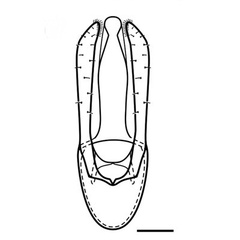
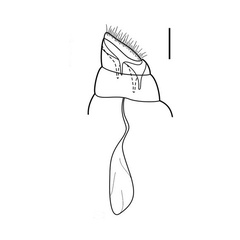
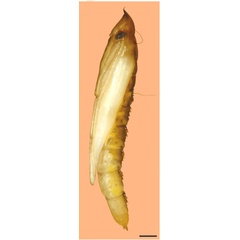
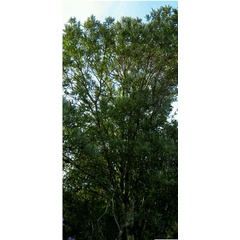
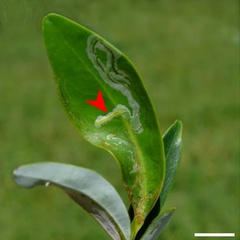
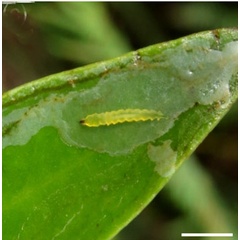
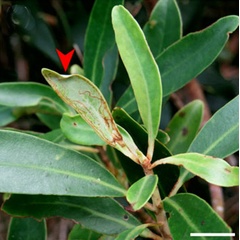
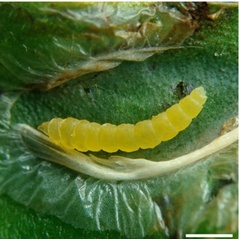
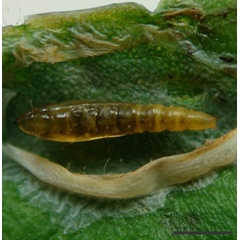
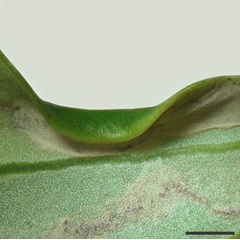
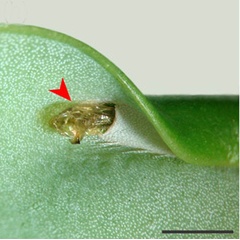
| Scientific Name | Authorship | Rank | Status | Original Combination |
|---|
| Scientific Name | Authorship | Rank | Status | Original Combination |
|---|